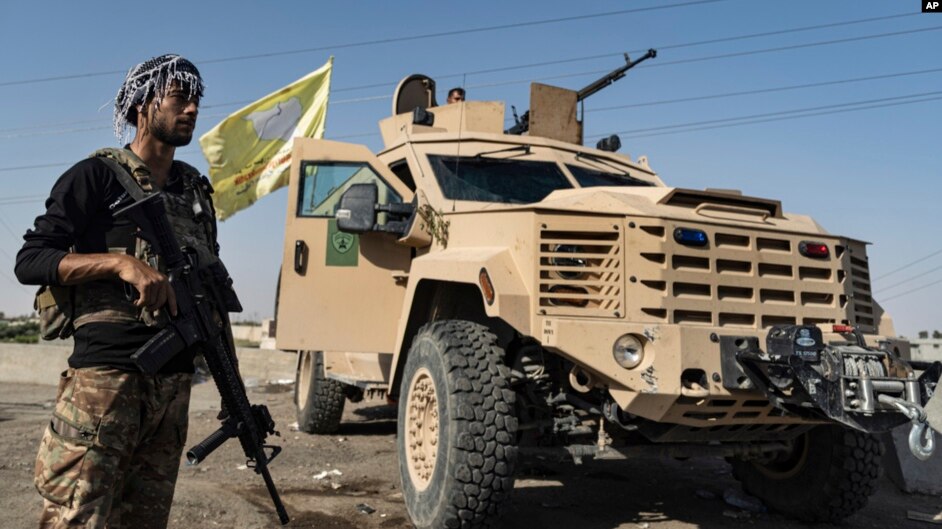Roundtable “North and East Syria (NES) on the Edge: Turkish Drones, Tribal Unrest, and the Fight for Stability”
Date of publication: October 18, 2024

On October 17, 2024, the Prague Center for Middle East Relations (PCMR) of CEVRO University hosted a closed roundtable discussion entitled “North and East Syria (NES) on the Edge: Turkish Drones, Tribal Unrest, and the Fight for Stability” with Mohammed Ibrahim, a political expert on the Syrian case.
Filip Sommer, Director of the Center for Middle East Relations (PCMR), moderated the debate, which was held under Chatham House Rules.
The event included a discussion on the current position of the Kurdish self-government within the Autonomous Administration of North and East Syria (AANES), focusing in particular on internal political dynamics and external threats to AANES, such as continued pressure from Turkey or Iran, a long-time ally of the Syrian regime. Furthermore, the debate revolved around the current indications of normalization of relations between Turkey and Syria and its implications for the AANES entity. Last but not least, the position of AANES and Syria as a whole in the context of the current escalation of tensions in Lebanon in the context of the conflict between Hezbollah and Israel was discussed.
Background
AANES, also known as Rojava, administers a multi-ethnic region inhabited mainly by Kurds, Arabs, and Assyrians. Politically, it operates within a decentralized system based on direct democracy, gender equality, and ethnic pluralism. Economically, the region faces problems caused by international sanctions, instability caused by conflict, and limited access to trade routes. However, it is trying to build self-sufficiency in agriculture and energy. As the rest of Syria, the AANES region is affected by the influx of refugees from neighboring Lebanon, the southern part of which is now facing an invasion by the Israeli Defense Forces (IDF).
Security remains a critical issue, with the Syrian Democratic Forces (SDF), backed by international partners, particularly the US, continuing to fight the remnants of the Islamic State in Iraq and Syria (ISIS). In addition to the internal surge of ISIS activity within the region, AANES faces significant external threats. Turkish drones frequently target key military and civilian figures in the administration to undermine its leadership and influence. Meanwhile, Iran and the Assad regime actively seek to destabilize AANES from the south, exploiting local tribal and clan dynamics to foment unrest and limit the region’s autonomy. This multifaceted pressure threatens the long-term stability of AANES and complicates its quest for international recognition.
Speaker‘s Bio
Mohammad Ibrahim is currently a political expert on the Syrian case. In the past, Mohammad worked with the USAID-funded Post-ISIS Syria’s Stabilization Program for several years, conducting research focused on restoring basic services, strengthening inclusive, accountable, and participatory local governance, and restoring livelihoods. He also has extensive experience in Access, Safety, and Security for several humanitarian organizations in Syria since the beginning of the conflict.
Workshop for CEVRO students
Mohammed Ibrahim also participated significantly in a workshop organized by PCMR on 16 October 2024 to get a taste of how to conduct research in conflict and post-conflict areas. Here, Mohammed presented his long-term experience of research in Syria. Filip Sommer, Director of PCMR, who has done field research in Iraq’s disputed territories, then added a presentation of his experience. The workshop was intended primarily for students of CEVRO University.
Image source: https://www.voanews.com/a/revolt-halted-but-us-backed-forces-still-face-challenges-in-eastern-syria/7259012.html

